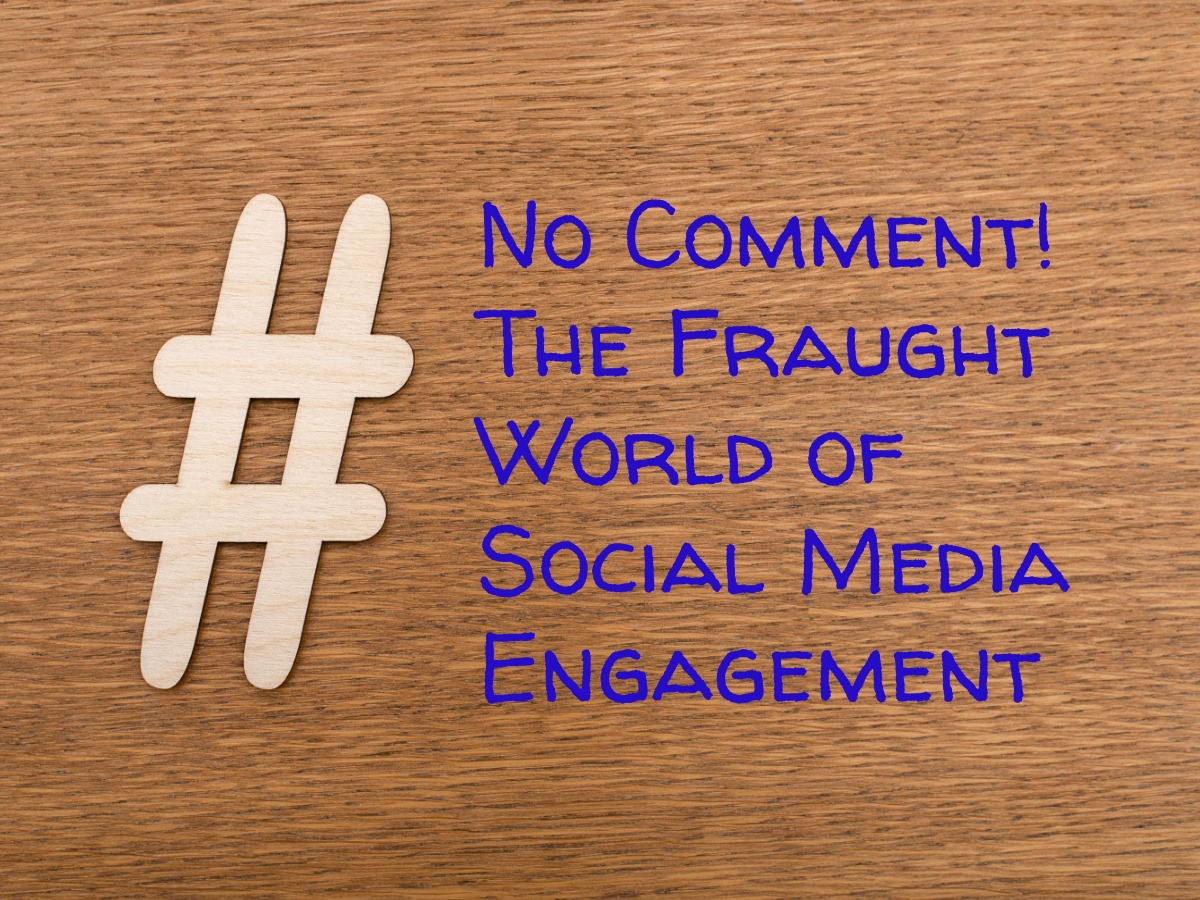No Comment - The Fraught World of Social Media Engagement
I’ve just finished the Piers Morgan’s Audiobook “Wake Up - Why the ‘liberal’ war on free speech is even more dangerous than Covid-19”. Apart from the obvious subject matter of his book, I just would not have the nerve to enter the Twittersphere. I would just crumple as I scroll through the comments. By tweeting, you are putting yourself out there, you are bearing your soul and are at the mercy of the crowd. Thankfully, for the normal person, the comments will be for the most part in support of your tweet or post. But if you dare to voice an opinion that is vaguely controversial then expect to see a few (hopefully only a few) inflammatory, ignorant statements that gets you all riled up. It’s part of the “Cancel Culture.” You indignantly type out a response to enlighten the commenter and point out the error of their ways. Your finger hovers across the send button. You hesitate for a few seconds, but you think, what the heck, you’re right and they’re just being narrow minded and ridiculous. Then your whole world explodes. Slander and insults are traded publicly for days. And you come out the other end feeling humiliated, exposed, unsatisfied and misunderstood. Has this ever happened to you?
Even if it hasn’t, you can go to the comments section of most social media posts and find a fight brewing. Posts by news outlets touting their latest story are an obvious place to look. But some of the more vicious stoushes don’t seem to occur as a result of comments by spokespeople that are already regarded as polarising (we know that Fox News and Kanye West are going to say some crazy stuff, so it’s not so shocking when they do), but when seemingly moderate and upstanding people or groups inadvertently say something that gets taken out of context.
Most of the time, the poster isn’t even the one doing battle. Wars rage on between followers and trolls, with followers seemingly believing that their words will change the mind of trolls, when all that is really happening is that they’re taking bait. You read the comments of the moralising person and think, “just give it up, save face, why do you think they care what you think, they’re just provoking you, you’re never going to win, the game is get you riled up, and they’ve just done it”. But if you’re the one that dared to shed some light? Unfortunately, our instincts mostly seem to lead us to battle on to the bitter end.
Why do we care so much what strangers think?
How does something with good intentions turn out to be so bad?
How have we become so quick to be incensed by people who don’t agree with us?
Spoiler – I have no answers to the above questions. I am not a psychologist. Or an anthropologist. I do not study changing societal norms. All I know is: put the phone down and back away.
I think it challenges the humanity inside us to believe that a person can subscribe to things we deem abhorrent. What does it say about us as a species if there are some amongst us vehemently defending outrageous notions. It’s why most of us couldn’t stop doom scrolling all of last year and early into 2021 till Trump left office. Who are these people? How can they possibly believe the things they say? But at the heart of it, it’s just maths. We’re products of the society we happen to be living in and the company we keep. And so are almost 8 billion other people who don’t live like us. Some of them just happen to invent social media platforms where we all bump into each other, and others get employed by troll farms to infiltrate them because they have no other way to earn an income.
So perhaps the question we should be asking ourselves is why we persist in going to an unreal place where billions of strangers are profiting and talking at once, hoping to change the world? Maybe we should just venture out our own front door. For real.
Perhaps what we really need to ask ourselves is: where else should I be spending my time.
